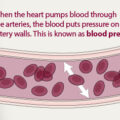
The condition can be very life-threatening as a lot of complications can arise from the accumulation of plaques within the vessel. Rupturing plagues can lead to the formation of blood clots, which can obstruct the vital flow of blood to the coronary artery.
Furthermore, when plagues harden, they lead to the narrowing of the coronary artery slowing or obstructing the flow of oxygenated blood to the heart. This condition is known as Ischemia. It is important to note that, the building up of this plaque in the heart’s arteries can lead to a heart attack.
Prevalence Of CHD
According to the World Health Organization (WHO) reviewed Fact sheet of September 2016, an estimated 17.5 million people died from cardiovascular diseases in 2012, representing 31% of all global deaths. Of these deaths, an estimated 7.4 million were due to coronary heart disease.
Coronary heart disease (CHD) is a major cause of death and disability in developed countries. Although CHD mortality rates worldwide have declined over the past four decades, CHD remains responsible for about one-third or more of all deaths in individuals over age 35. It has been estimated that nearly one-half of all middle-aged men and one-third of middle-aged women in the United States will develop some manifestation of CHD.
Risk Factors of CHD
There are several risk factors that predispose an individual to coronary heart disease, these factors increase the likelihood of developing CHD
- Smoking
- High blood pressure
- High blood cholesterol
- Diabetes
- Being physically inactive
- Being overweight or obese
- Family history of heart disease
- Ethnic background
- Sex – men are more likely to develop CHD at an earlier age than women.
- Age – the older you are, the more likely you are to develop CHD. SEE: Does Red Meat Cause Heart Disease?
Symptoms
Chest pain (angina)
Shortness of breath
Heart attack.
Diagnosis
Diagnosis of coronary heart disease (CHD) is often carried out after a risk assessment where the doctor will review the patients
- Medical and family history
- Check your blood pressure
- Carry out a blood test to determine cholesterol level
- Further tests such as an electrocardiogram (ECG) exercise stress tests, X-rays echocardiogram, blood tests, coronary angiography, radionuclide tests, magnetic resonance imaging (MRI) scans, computerized tomography (CT) scans may be carried out to confirm a suspected diagnosis.
Treatment
There are several drugs used in the management of coronary heart disease also called coronary artery disease. This however depends on the need of the patient. In general, four classes of drugs are used in the management of the condition. This includes;
Antiplatelet
Beta-blockers
Calcium channel blockers
Angiotensin-converting enzyme (ACE) inhibitors and angiotensin II receptor blockers (ARBs).
Fibrates and Statins
Nitrates
Foods That Help Prevent Heart Disease
The foods that best prevent coronary heart disease include:
Fatty fish – such as mackerel, sardines, tuna, and salmon are rich and contain omega-3 fatty acids. This type of fat has been shown to decrease triglycerides and increase Good cholesterol (HDL) levels. They also improve blood vessel elasticity and thins the blood, making it less likely to clot and block blood flow which is the major cause of heart attack.
Vegetable oils – Some vegetable oils extracted from corn, soy, and safflower, which contain omega-6 fatty acids, while others such as canola and olive oil contain omega-3 fatty acids. These oil can help to lower LDL cholesterol( Bad Cholesterol) when used instead of saturated fats such as butter
Fruit and vegetables – The antioxidants in fruit and vegetables offer wide ranging protection against heart disease. They are also important sources of folate, which helps lower the blood levels of the amino acid homocysteine, which has been implicated as one of the factors that increase the risk of heart disease
Fibre – According to the American Heart Association, dietary fiber from whole grains, as part of an overall healthy diet, may help improve blood cholesterol levels, and lower the risk of heart disease, stroke, obesity, and type 2 diabetes.
Legumes and Soy – Soy and legumes are among the foods that help prevent heart disease. Research has shown that soy protein and legumes lower blood LDL cholesterol levels and that soy consumption may also improve blood pressure and arterial health.
Effect of Nuts and seeds On Heart Disease – Nuts and seeds are rich in protein, vitamins, and minerals. They are also good sources of unsaturated healthy fats. These healthier fats help to prevent heart disease. Including nuts and seeds in your diet is great for your heart health. However, they should be eaten in small quantities, as they are high in kilojoules.
Tea and Heart Disease – Studies have shown that tea flavonoids may help promote heart health by improving blood vessel and endothelial function, and by improving cholesterol levels. Recent studies have found that in people at risk for coronary disease, tea, and its flavonoids can have a significant cholesterol-lowering effect by preventing the build-up of fatty deposits in the arteries.
Copyright ©
Permission is hereby granted for the use of whole or parts of this article provided appropriate credit is given to www.publichealth.com.ng
Public Health Nigeria an Interdisciplinary public health movement focused on health education, advancing fair public health policies, promoting fitness, healthy diets, responsible behavior, community health and general well-being.






7 Comments